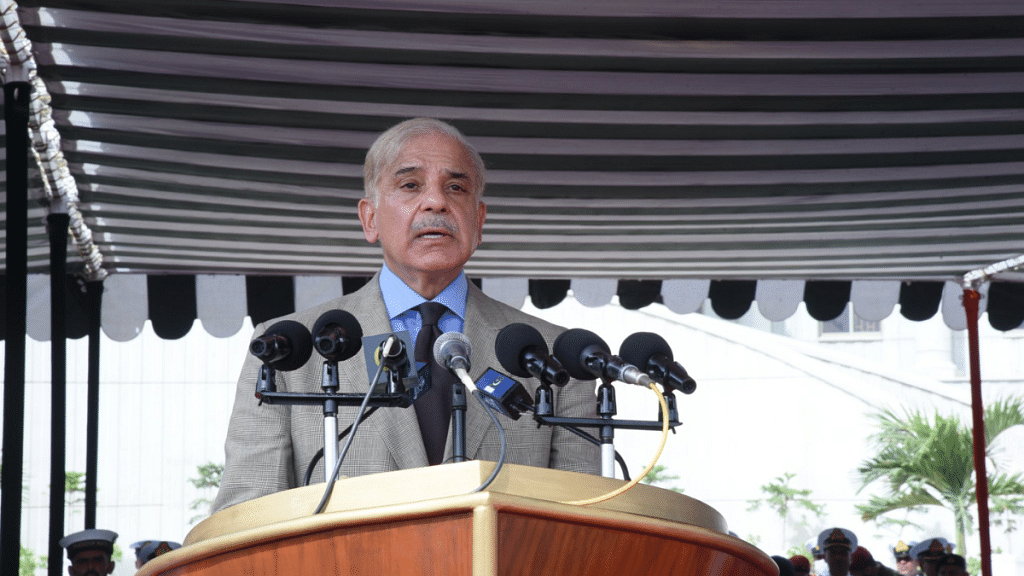New Delhi: Gang culture isn’t limited to Indian states like Punjab alone. It’s a problem across the border as well. Pakistan Prime Minister Shehbaz Sharif recently approved a fresh operation to be conducted against militant gangs in the country’s Punjab province. Three hundred law officers have been roped in for this massive operation.
Operations against armed gangs in Pakistan started nearly 20 years ago, and yet, a permanent solution hasn’t come about. In the latest briefing to the Prime Minister, it was conveyed that a long-term plan of building sustainable socio-economic infrastructure in the region could be the key.
Latest ‘effective’ strategy
The latest operation will be conducted in four phases: Approach, clearance, consolidation, and normalisation. The first phase, which was kicked off on 27 June, includes setting up pickets and gaining access and control of the areas. In the following phases, the focus will be on building and developing infrastructure, including bridges on the Indus, police stations, permanent checkpoints, patrolling, and appointment of officers.
The last successful operation against the gangs was launched in 2016 during Nawaz Sharif’s third tenure as the prime minister. Called Zarb-e-Ahan, it was led by then-Corps Commander Lahore Lt Gen Sadiq Ali.
Also read: ‘Calls from Tihar, stalking reels’: Police say Bishnoi ‘macromanaged’ Moose Wala murder from jail
Gangs of South Punjab
South Punjab in Pakistan is a tribal rural belt that is virtually ruled by well-armed, violent gangs. They operate from riverine hideouts in the Katcha areas along the provincial border with Balochistan and Sindh. Involved in crimes ranging from robberies, kidnapping for ransom, smuggling, and even murders, they are reportedly protected by local tribal chiefs, which makes it difficult for authorities to take fruitful action.
The tribal status of the region is also a major factor that deters the extension of the police’s writ into the areas of these gangs. The Border Military Police is neither trained nor equipped to deal with them. The State armoury, too, is an issue — the gangs have better weapons and knowledge of escape routes.
One of the gangs, Ladi, was formed in 2002 to extort money from local cement factories. It was backed by the heads of some local tribes that had strong political backgrounds in Dera Ghazi Khan. The gang later expanded its operations and was also reportedly supported by terrorist groups like the Baloch Republican Army and the Balochistan Liberation Army.
Government action
Due to the support of both locals and outside terror groups, crackdowns have not always been fruitful in curbing the violence. The Nawaz Sharif government had to call in the army to quash the infamous ‘Chotu gang’ led by Ghulam Rasool whose nickname is ‘Chotu’. The gang had been active in the Kacha area of Rajanpur for more than a decade, and in 2016, the government forced the ringleaders to surrender after weeks of gunfights and several deaths.
But despite the seeming end of the Chotu gang’s might, in June 2021, members of the gang held two policemen hostage and demanded the release of its several key members, including Ghulam Rasool.
While the gangs make headlines in Pakistani media every few months, a recent incident has led the Shehbaz Sharif government to launch stricter counter operations. In March 2022, armed robbers of the Ladi gang barged into the Border Military Police’s Kushuba police station, shot a video, and uploaded it on social media.
Members of the gang also held two police personnel hostage during their raid. In another incident, a video showing the brutal murder of two tribesmen (allegedly police informers) also went viral on social media. Then-PM Imran Khan also ordered an intensive operation against the gang, which resulted in the death of the ringleader, Khuda Baksh Chakrani, in an encounter.
The latest operation is a step toward addressing the re-emergence of the gangs, and one that aims to eradicate their stronghold in Rahim Yar Khan and Rajanpur districts.
(Edited by Humra Laeeq)
